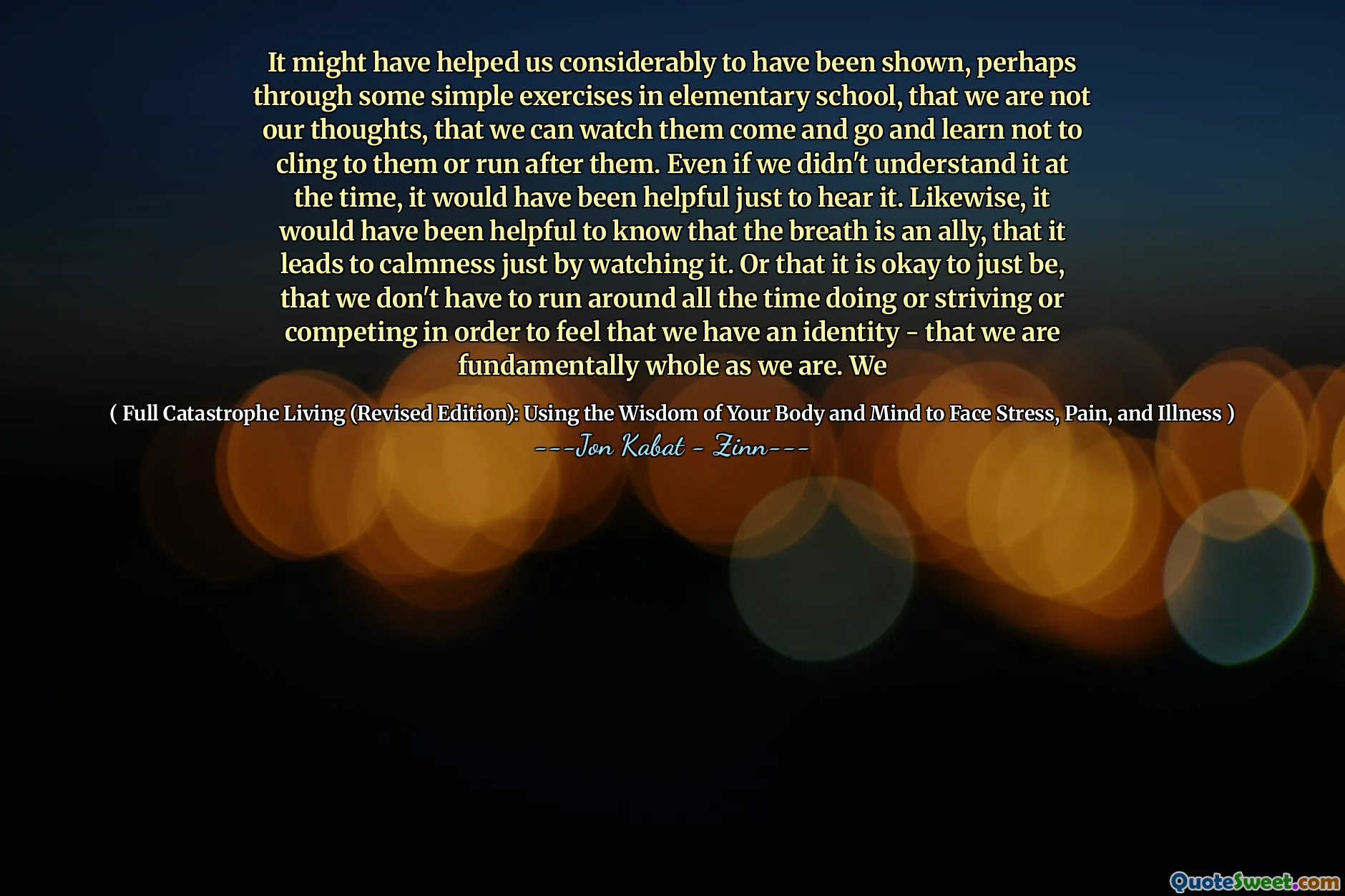
It might have helped us considerably to have been shown, perhaps through some simple exercises in elementary school, that we are not our thoughts, that we can watch them come and go and learn not to cling to them or run after them. Even if we didn't understand it at the time, it would have been helpful just to hear it. Likewise, it would have been helpful to know that the breath is an ally, that it leads to calmness just by watching it. Or that it is okay to just be, that we don't have to run around all the time doing or striving or competing in order to feel that we have an identity - that we are fundamentally whole as we are. We
This quotation underscores the importance of cultivating awareness and mindfulness from an early age. It suggests that many of us live dominated by our thoughts, often unreachable or uncontrollable without proper guidance. By teaching children that thoughts are transient and that they are separate from their identity, we could foster a sense of inner peace and stability. Recognizing the breath as an ally emphasizes the power of mindful breathing practices to induce calmness and clarity amidst chaos. Moreover, embracing the notion that it is okay to simply be—without always striving or competing—can lead to a profound acceptance of oneself. This perspective challenges the widespread cultural emphasis on achievement and outward success, encouraging instead a deeper understanding of our inherent wholeness. Incorporating such teachings into early education could equip future generations with tools to navigate life's stresses more gracefully, fostering resilience, compassion, and authentic self-awareness. The realization that we are enough in our being—without constant doing—can profoundly shift the way we relate to ourselves and others, ultimately contributing to mental well-being and a more peaceful society.






